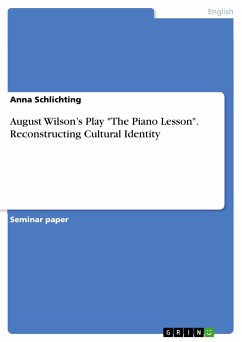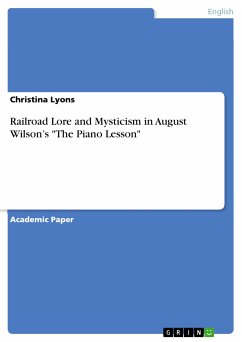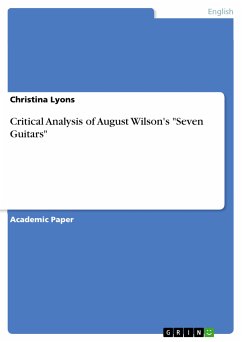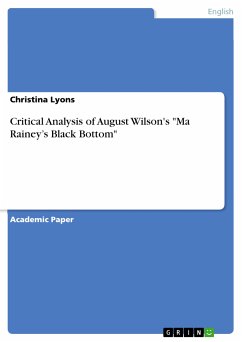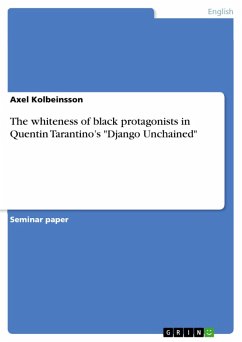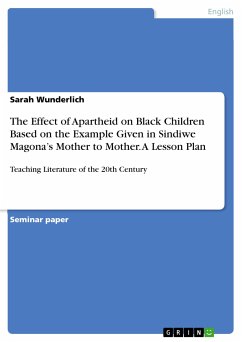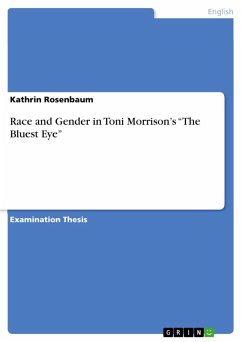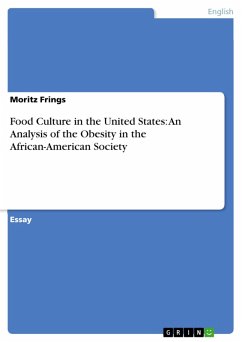Seminar paper from the year 2020 in the subject American Studies - Literature, grade: 1,7, University of Duisburg-Essen (Department of Anglophone Studies), language: English, abstract: "The Piano Lesson" tells the story about an African American family during the 1930s that is haunted by the past and shows the bitter fate of the unchangeability of the enslavement of their ancestors. Wilson wrote "The Piano Lesson" as a way of investigation on how African Americans should confront the painful past of slavery and discrimination. This paper shall investigate the different ways of approaching history for descendants of formerly enslaved families. This research addresses multiple issues: How does one deal with the burdens of the past? How can one use the past to make the best for the future and reconstruct cultural identity? In order to answer this question, I am going to interpret the different symbolic devices in the play and put them in context with the historical background. I will take a closer look at how the characters deal with the past, how they try to break away from the old chains of their ancestors and how they live their lives with the burdens of history. I will analyze and interpret the behavior of the characters in more detail. I will further argue that August Wilsons uses his characters and the play itself to show that moving forward and accepting the past is necessary in order to reconstruct cultural identity.
Dieser Download kann aus rechtlichen Gründen nur mit Rechnungsadresse in A, B, BG, CY, CZ, D, DK, EW, E, FIN, F, GR, HR, H, IRL, I, LT, L, LR, M, NL, PL, P, R, S, SLO, SK ausgeliefert werden.

